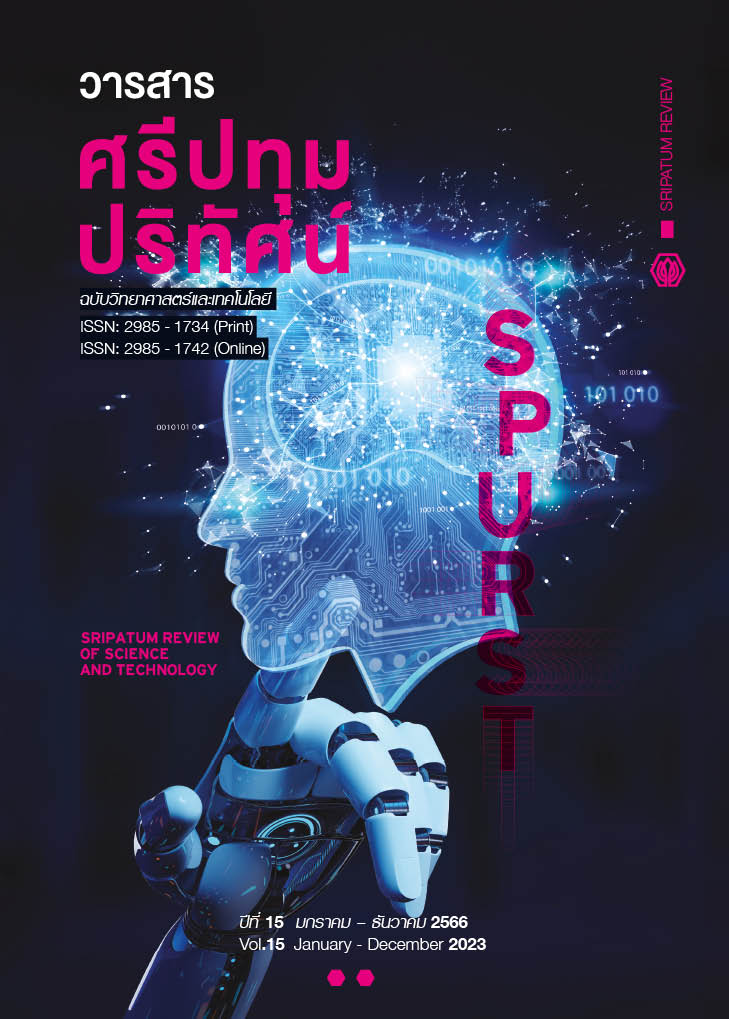Developing a Model Forecasting Extra Fuel for Airbus A320-200 Landing at Suvarnabhumi Airport: a case study of Thai Smile Airways
Main Article Content
Abstract
This research aims to develop a model forecasting the amount of extra fuel of Airbus A320-200 landing at Suvarnabhumi Airport to achieve economy purpose within an acceptable level of flight safety. This research was carried out with mixed methods using quantitative leading qualitative technique by gathering aeronautical variables which was summarized into 8 items derived from captain interviews associated with the secondary data from the 427 historical flight data, divided into 307 training set with 120 testing set. The data were analyzed by Artificial Neural Networks technique to create the Extra Fuel Forecasting Model (EFFM). The backward test forecasting was then performed for the efficiency and expense comparison, along with utilization of the EFFM by pilot in flight. The results found that the accuracy of the EFFM was assessed by the sum of square error, equaled to 0.346. By the relative error, the accuracy value of actual flight test equaled to 91.67%. However, if THAI Smile Airways utilized the EFFM from 1 April 2019 to 31 March 2020, the airline would have reduced expenses by 10,929,197.60 baht. In conclusion, the EFFM is function to save the fuel costs and assure the pilots to operate flight safely.
Article Details
References
Casado, R., and Bermúdez, A. (2020). Neural Network-Based Aircraft Conflict Prediction in Final Approach Maneuvers. Electronics, 9(10), 1708.
Chiewchanwattana, S. (2020). Artificial Neural Networks. Khon Kaen: Klungnan Vitthaya. (in Thai)
Eiampan, T. (2019). Human Error Management in Aviation. Sripatum Review of Humanities and Social Sciences, 19(2), 166-176. (in Thai)
Hongboonmee, N. (2021). Predictive System for Risk of Herniated Disc via Smartphone using Data Mining Techniques. Sripatum Review of Science and Technology, 13(1), 128-143. (in Thai)
Kanthananon, K. (2018). Statistical Forecasting. Bangkok: Se-Education. (in Thai)
Kengpol, A., and Wangkananon, W. (2015). An assessment of customer contentment for ready-to-drink tea flavor notes using artificial neural networks. In V. Kachitvichyanukul, K. Sethanan, P. Golinska-Dawson (Eds.), Toward sustainable operations of supply chain and logistics systems. (pp. 421-434). Springer.
Mazraati, M., and Alyousif, O. M. (2009). Aviation Fuel Demand Modelling in OECD and Developing Countries: Impacts of Fuel Efficiency. OPEC Energy Review, 33(1), 23-46.
Paul, S., Kapoor, K., Jasani, D., Dudhwewala, R., Gowda, V. B., and Nair, T. R. (2010). Application of artificial neural networks in aircraft maintenance, repair and overhaul solutions. The Proceedings of Total Engineering, Analysis and Manufacturing Technologies [TEAMTECH2008], 22nd- 24th September 2008 at IISc, Bangalore.
Singh, V., and Sharma, S. K. (2014). Evolving Base for The Fuel Consumption Optimization in Indian Air Transport: Application of Structural Equation Modeling. European Transport Research Review, 6(3), 315-332.
Singh, V., and Sharma, S. K. (2015). Fuel Consumption Optimization in Air Transport: A Review, Classification, Critique, Simple Meta-analysis, and Future Research Implications. European Transport Research Review, 7(2), 1-24.
Sirinaovakul, B. (2013). Artificial Intelligence: Swarm Intelligence. Bangkok: Top Publishing. (in Thai)
Thai Smile Airways Co., Ltd. (2020a). Operation Manual Part A (Unpublished confidential document). Bangkok: Author.
Thai Smile Airways Co., Ltd. (2020b, January 23). Thai Smile Airways’ expense of Fuel [Paper presentation]. Thai Airways International Public Company Limited’s Board Meeting. Bangkok. (in Thai)


